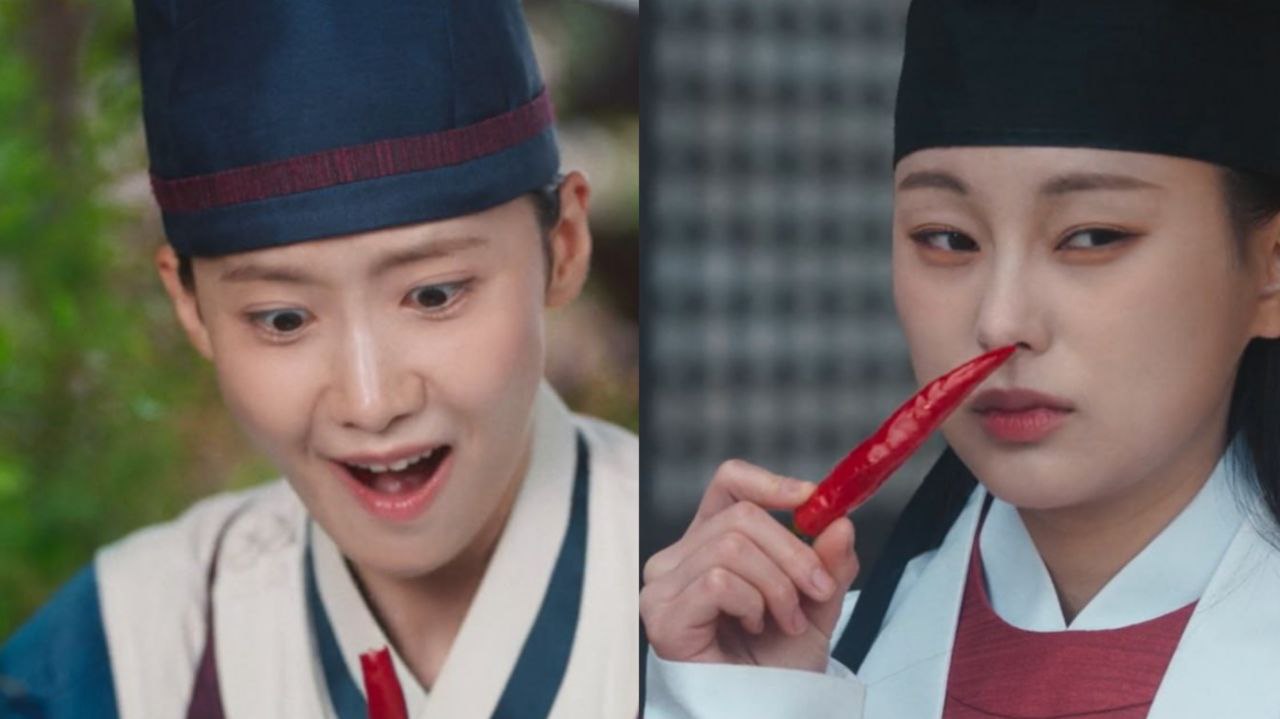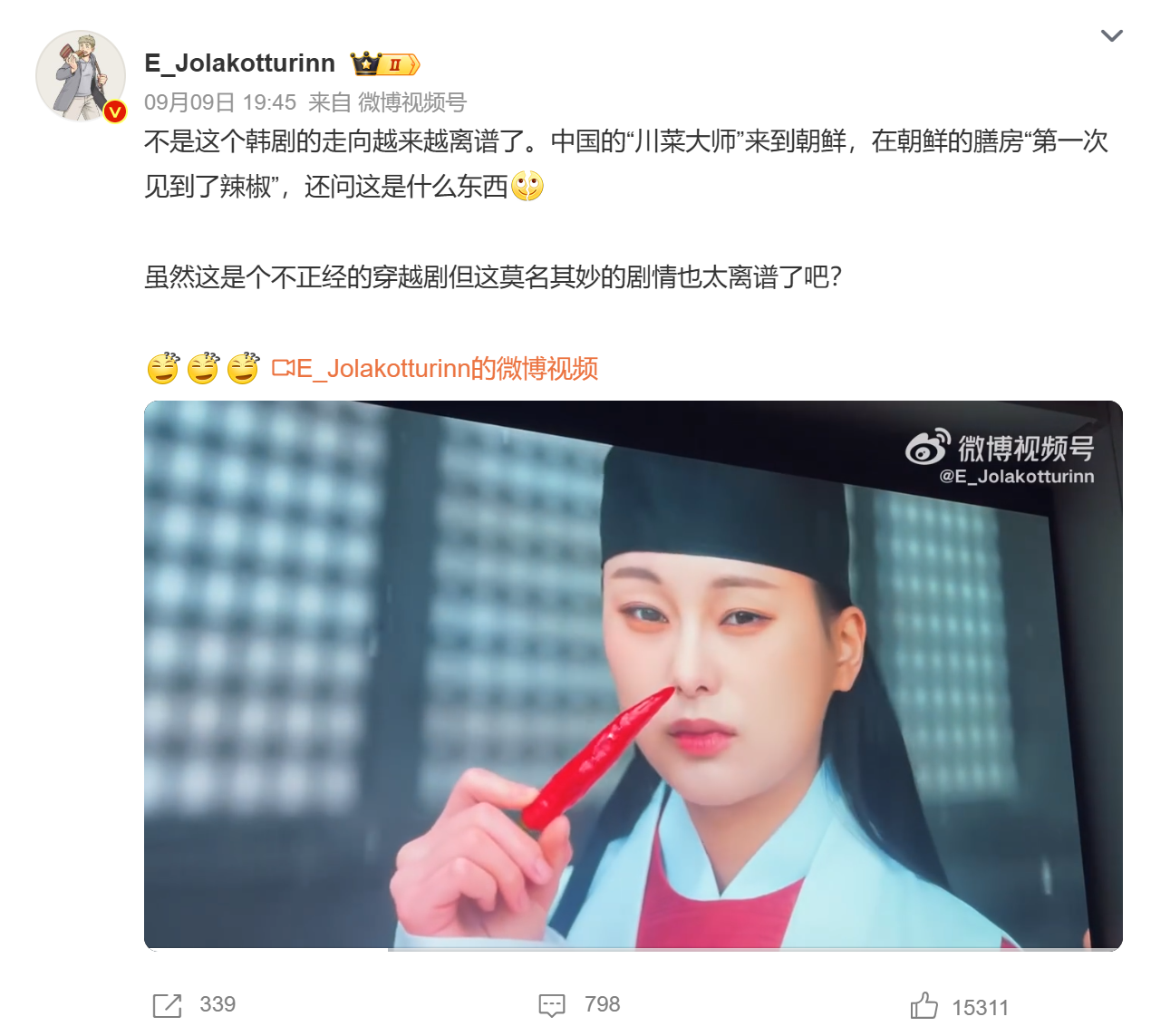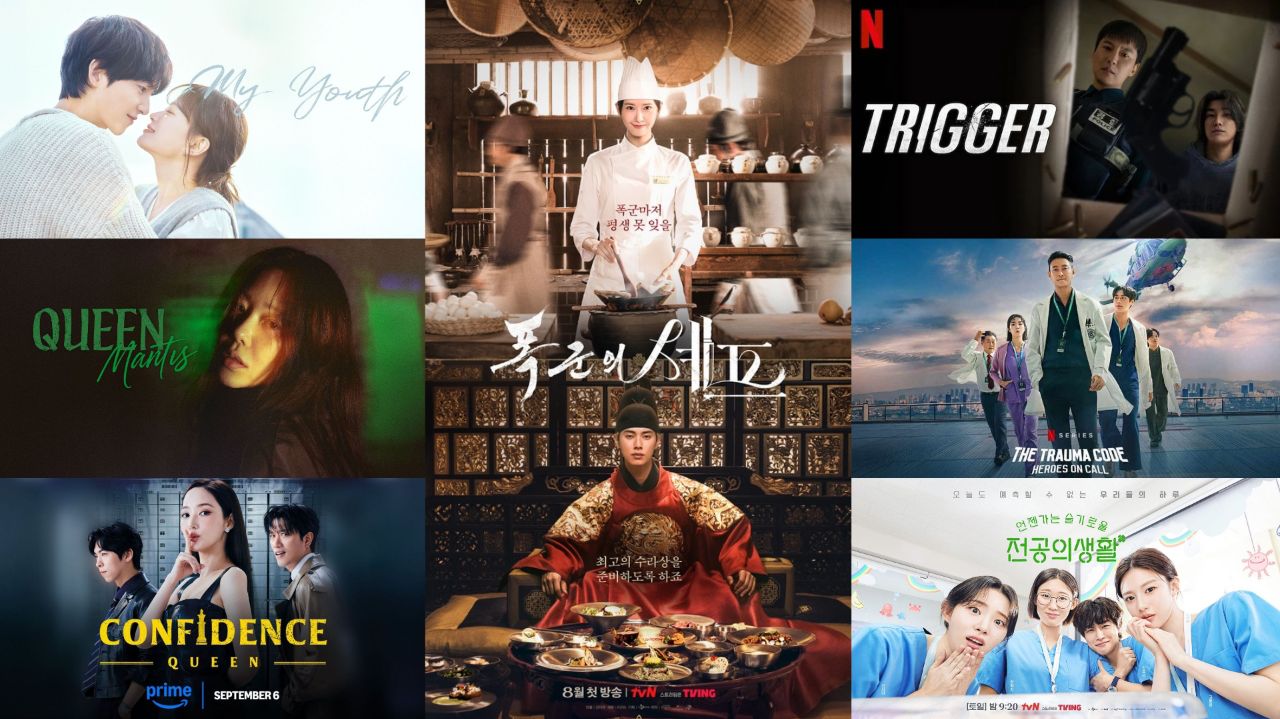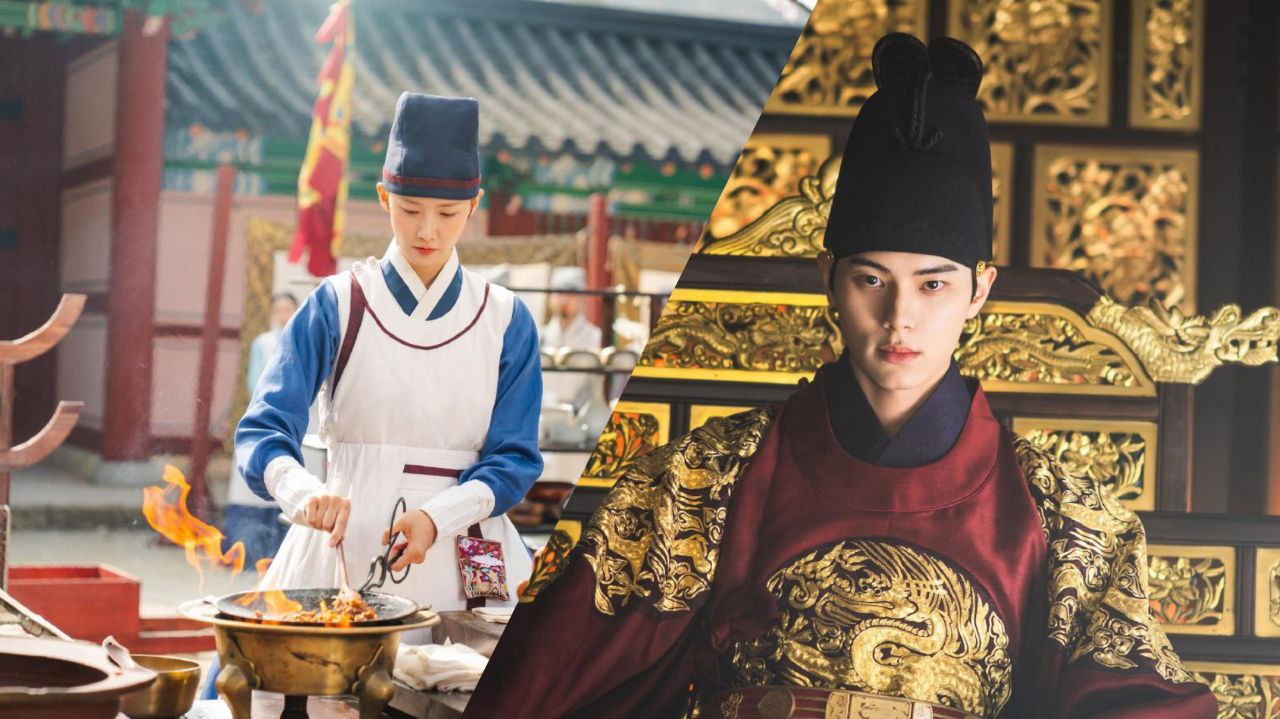K-drama Bon Appétit, Your Majesty Sparks Debate: Why a Sichuan Chef “Not Knowing Chili” Feels Wrong

The Korean drama Bon Appétit, Your Majesty features a scene where a Chinese Sichuan chef, acting as a Ming envoy, encounters chili peppers in Joseon Korea for the first time. Many Chinese viewers called this “historically impossible.” Records show chili appeared in China before Korea, and the scene raised broader concerns about cultural misrepresentation. Let’s break down the controversy and the real history of chili in East Asia.
One of the most talked-about scenes in the new Korean drama Bon Appétit, Your Majesty is not about romance or palace intrigue. It is about chili peppers. The show depicts a Chinese Sichuan chef, serving as a Ming envoy in Joseon Korea, who sees chili for the first time and does not recognize it. For many Chinese viewers, this was not just a small plot detail but a major historical and cultural “mistake.”
Did chili really appear in China earlier than Korea?
Yes. The timeline from historical sources is fairly clear.
- China: The earliest known record of chili in Chinese texts appears in 1591, in Gao Lian’s Zunsheng Bajian. Chili is described there as “fan jiao,” mainly as an ornamental plant.
- Korea: The first mention comes in 1614 in Yi Su-gwang’s Jibong Yuseol, about 23 years later.
So based on documents, China recorded chili earlier than Korea. While it is true that chili became widely used in different ways over time, the Ming envoy in the drama would not have been completely unfamiliar with it.
Why does the drama’s version upset viewers?
There are a few reasons:
- Timeline mismatch: By the late Ming period, chili had already been noted in China, even if it was first decorative. By the 18th century, Sichuan cuisine had fully embraced chili together with Sichuan peppercorns, creating the “mala” (numbing-spicy) taste now famous worldwide. Meanwhile in Korea, chili was mainly used for kimchi preservation well into the 19th century. So it makes little sense for a Sichuan master chef to act as if chili was brand new in Korea.
- Cultural misreading: Sichuan cuisine before chili was not bland. For more than 2,000 years, it relied on local spices like Sichuan pepper, ginger, and evodia. The drama makes it look like Chinese cuisine only learned to use spices from Korea, which many see as misleading. Some Chinese viewers felt the scene made it seem like Korea was the first to use or master chili, which they see as diminishing China’s culinary history.

Other production controversies
This is not the only detail under fire. Several other issues have been noticed since the drama aired:
- Poor Chinese pronunciation: Characters representing Ming envoys speak Chinese, but many native speakers found the pronunciation clumsy or even laughable. One Chinese voice actor openly mocked it online, saying the lines were “hard to listen to.”
- Wrong hanja (Chinese character) props: A banner in the first episode was supposed to read “太平聖代” (meaning “peaceful and prosperous era”). Instead, it was written “太平聖大,” a mistake between “代” (era) and “大” (big). The production team has since apologized and promised to fix it in replays and streaming versions.
- Historical anachronisms: Viewers also pointed out Joseon characters making macarons or using advanced greenhouse methods that simply did not exist at that time. Critics accused the show of “fantasy history without limits.”
How should dramas balance history and storytelling?
It is easy to say “it’s just a drama,” but when shows touch on cultural and historical details, audiences care. Here are some lessons:
- Hire or consult with historians, especially when food, language, or clothing are central to the plot. Small details matter.
- If the show is meant to be fantasy or alternate history, say so clearly. A disclaimer helps set expectations.
- Be accurate with language and writing. Mispronounced Chinese lines or misspelled characters can break immersion quickly.
- Avoid rewriting cultural origins. It is fine to show exchange between cultures, but erasing or flipping history creates unnecessary tension.
Chili as a symbol of cultural exchange
Chili is a great example of how cultures share and adapt ideas. It came from the Americas, traveled to Europe, and then reached Asia through trade. In China, it became a key part of Sichuan cuisine. In Korea, it turned kimchi into the spicy dish we know today. Both uses are worth celebrating.
Chili shows how cultures borrow and make something new. Fighting over who “discovered” it first misses the point.
Conclusion
The controversy around Bon Appétit, Your Majesty is less about one vegetable and more about cultural trust. Audiences today are quick to fact-check, and when they see errors that look like cultural appropriation, they respond strongly.
Yes, dramas need creative freedom. Getting history right, especially on sensitive cultural topics, isn’t a burden. It makes the story stronger and more believable. The chili debate shows that even small details on screen can spark big conversations.






Comments (1)
It’s just a drama, but I get why viewers are frustrated
Leave a Reply
Sign in to leave a comment
Sign in with Google